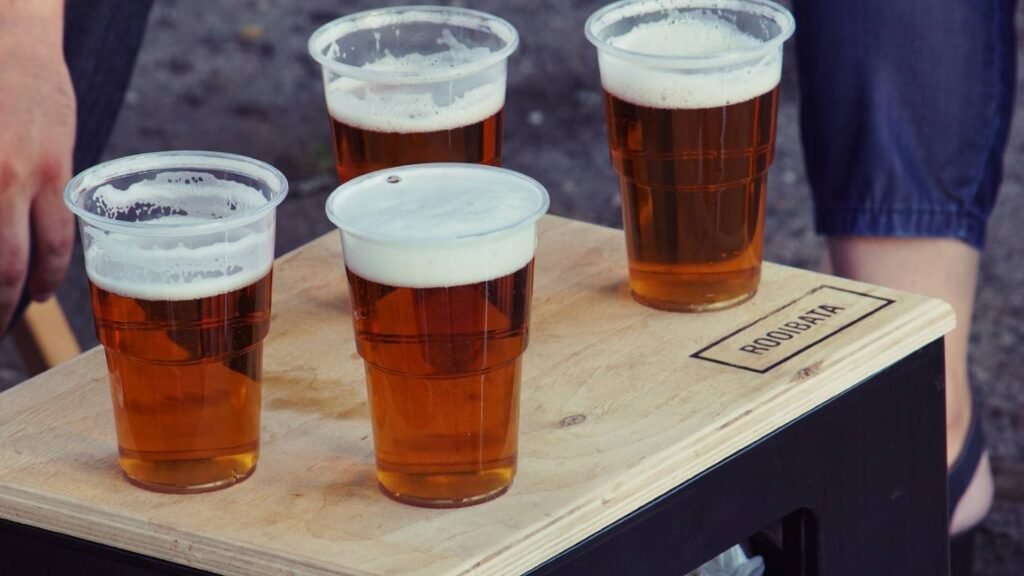The number of shots of vodka it takes to get drunk varies from person to person. Several factors come into play, including body weight, metabolism, tolerance, and individual differences. Additionally, the alcohol content of the vodka and the speed at which you consume the shots also affect the level of intoxication. It’s important to note that getting drunk can have serious health and safety implications. Understanding your own alcohol tolerance and drinking responsibly is crucial. Here’s some information to consider:
Factors Affecting Alcohol Tolerance

- Body Weight: Generally, individuals with higher body weight have a higher alcohol tolerance. This is because alcohol gets distributed throughout the body, and a larger body mass dilutes the alcohol concentration.
- Metabolism: Metabolism plays a role in how quickly your body processes alcohol. People with faster metabolisms may feel the effects of alcohol less intensely and for shorter durations.
- Gender: In general, women tend to have lower alcohol tolerance than men. This is because women typically have a higher percentage of body fat and lower levels of the enzyme alcohol dehydrogenase, which breaks down alcohol.
- Genetics: Genetic factors can influence alcohol metabolism and tolerance. Some individuals may have genetic variations that affect how their bodies process alcohol.
- Food Consumption: Consuming food before drinking can slow down alcohol absorption, delaying its effects. Drinking on an empty stomach can lead to faster intoxication.
Alcohol Content and Standard Drink Size

The alcohol content of vodka can vary, but it is typically around 40% alcohol by volume (ABV). When considering shots, it’s important to understand what constitutes a standard drink. In the United States, a standard drink is defined as 14 grams (0.6 ounces) of pure alcohol, which is roughly equivalent to:
- 1.5 ounces (44 milliliters) of distilled spirits like vodka (40% ABV)
- 5 ounces (148 milliliters) of wine (12% ABV)
- 12 ounces (355 milliliters) of beer (5% ABV)
Understanding Your Alcohol Tolerance
It’s essential to understand your own alcohol tolerance and how it affects you individually. What might make one person mildly intoxicated could have a stronger effect on another person. Experimenting with alcohol should be done cautiously, and it’s crucial to be aware of your limits and drink responsibly.
Responsible Drinking Guidelines
To drink responsibly and avoid getting drunk, consider the following guidelines:
- Legal Drinking Age: Ensure you are of legal drinking age in your country or region before consuming alcohol.
- Know Your Limits: Understand your own alcohol tolerance and be mindful of how much you can comfortably consume without becoming intoxicated.
- Moderation: Pace yourself and avoid binge drinking. Spread out your alcohol consumption over a longer period rather than consuming shots rapidly.
- Alternate with Non-Alcoholic Beverages: Intersperse alcoholic drinks with non-alcoholic ones like water or soft drinks to hydrate and slow down your alcohol consumption.
- Designated Driver: If you plan to drink, make transportation arrangements in advance. Designate a sober driver, use public transportation, or utilize ride-sharing services to ensure your safety and the safety of others.
- Avoid Peer Pressure: Do not let peer pressure influence your drinking habits. Stick to your personal limits and be comfortable declining drinks if you feel it’s necessary.
It’s important to remember that excessive alcohol consumption can lead to severe health problems, impaired judgment, and risky behaviors. If you find yourself or someone else consistently relying on alcohol to cope or experiencing negative consequences due to alcohol use, it may be wise to seek support from a healthcare professional.
Conclusion
Determining how many shots of vodka it takes to get drunk is a subjective matter. Alcohol tolerance varies among individuals, and multiple factors contribute to intoxication levels. Drinking responsibly, understanding your own limits, and prioritizing your well-being and safety are crucial when consuming alcohol. Always make informed decisions, be mindful of your alcohol consumption, and seek help if needed.


